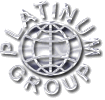Land
and People
officially State
of Kuwait, independent sheikhdom (1995 est. pop. 1,817,000),
6,177 sq mi (16,000 sq km), NE Arabian peninsula, at the head
of the Persian Gulf, bounded by Saudi Arabia (S) and Iraq
(N and W). The capital is Kuwait. It is a sandy and barren
country. With more than 10% of the world's estimated oil reserves,
Kuwait is a leading exporter of petroleum and has used some
of the enormous profits for social improvements. In the 1960s
the government launched a program of industrial diversification,
successfully introducing oil refining and production of natural
gas and fertilizers. The population is predominantly Arab
and Sunni Muslim, although only half the inhabitants are native-born.
About
95% of Lebanese are Arabs; Armenians are the principal minority.
Arabic is the official language; French, English, and Armenian
are also spoken. About 70% of the population is Muslim and
about 30% is Christian, and each is divided into a number
of sects, including the Druze . Political life is profoundly
affected by the country's religious diversity. Political groups
that are mainly Christian, especially of the Maronite sect,
generally favor an independent course for Lebanon, stressing
its ties with Europe. The Muslims, however, favor closer ties
with the surrounding Arab countries.
|

Highness Sheikh
Sabah |
Government
Kuwait, settled
by Arab tribes in the early 18th cent., has been ruled since
its inception by the al-Sabah dynasty. Nominally an Ottoman
province, the sheikhdom became a British protectorate in 1897,
remaining so until independence in 1961. Oil production began
in the 1940s and was controlled by a joint British-American
firm until 1974, when Kuwait nationalized most of the operations.
Kuwait took part in the Arab oil embargo against nations that
supported Israel in the 1973 Arab-Israeli War and is a member
of the Organization of Petroleum Exporting Countries (OPEC).
In Aug. 1990, Kuwait was invaded and forcibly annexed by Iraq,
an act that led to and was reversed by the Persian Gulf War.
The war and widespread looting and intentional destruction
by Iraqi troops devastated Kuwait, particularly its oil fields,
but by the end of 1992 the country had repaired nearly all
the damage and its oil output was at about the prewar level.
Large areas of land, however, remained environmentally devastated.
In 1992, opposition candidates won a majority of the seats
in parliament; the al-Sabah family, however, continued to
dominate the government. An Iraqi military buildup near the
Kuwait border led the U.S. to send troops to Kuwait in 1994.
Parliament was dissolved by the sheikh in May 1999; elections
in July gave Islamist and liberal candidates the most seats.
An edict (1999) by the sheikh giving Kuwaiti women the right
to vote and run for office failed to win parliamentary ratification.
In the July, 2003, parliamentary elections Islamists won 42%
of the seats, while liberals retained only a handful; government
supporters won 28% of the seats.
Economy
Kuwait's traditional
exports were pearls and hides, but since 1946 it has become
a major petroleum producer and oil now dominates the economy.
The country is mostly desert, with some fertile areas near
the Persian Gulf coast; there is virtually no agricultural
industry.
Kuwait has the
third largest oil reserves in the world after Saudi Arabia
and Iraq. The main concession for oil exploitation was held
by a joint British-American firm until 1974, when Kuwait took
control of most of the operations; it had previously retained
a large part of the oil profits. Much of the profits have
been devoted to the modernization of living conditions and
education in the country. The petroleum industry, which accounts
for over 90% of Kuwait's export revenues, was severely damaged
in the Persian Gulf War. However, by the end of 1992, the
country had repaired nearly all the damage to its war-ravaged
oil fields and its oil output was at about prewar levels.
Huge amounts of natural gas complement Kuwait's oil production.
To provide
against the possible future exhaustion of the oil reserves,
in the 1960s the government launched a program of industrial
diversification and overseas investment. Present industries
include food processing, desalinization, construction, and
the manufacture of electronics, cement, textiles, and fertilizers.
Food, construction materials, vehicles, and clothing are the
principal imports. Kuwait's major trading partners are the
United States, Japan, European Union countries, and Singapore.
|

